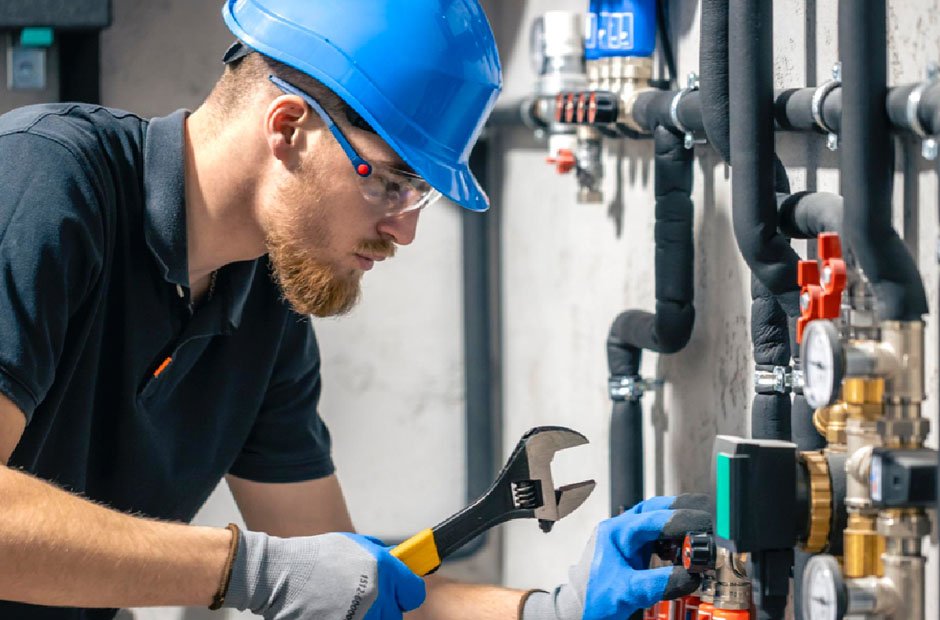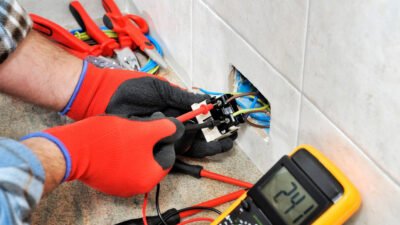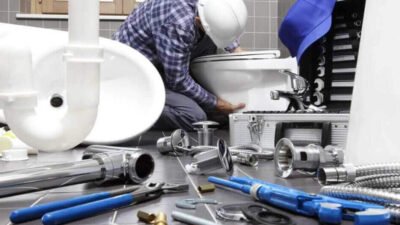Plumbing emergencies can strike at any time, and the approach to resolving them varies dramatically based on the type of property involved. Whether you manage an office building or own a single-family home, understanding the contrast between residential and commercial emergency plumbing services is essential for protecting your property and minimizing disruption. When a disaster happens, finding a reliable emergency plumber near me can make all the difference in ensuring a swift and effective resolution, especially when each property type faces its own unique challenges.
The stakes are often higher in commercial settings due to the system’s complexity and the potential for greater disruption. Conversely, residential properties require more individualized attention and rapid fixes that can restore peace and normalcy to a household. Property owners and managers benefit from understanding the distinctions and considerations involved in selecting exemplary plumbing services, ensuring that critical repairs are handled with expertise and compliance.
System Complexity and Scale
Residential plumbing is generally designed for lower capacity, serving single-family homes or small apartment buildings. The layouts are simpler, utilizing fewer fixtures, shorter pipe runs, and standard components, such as toilets, sinks, and water heaters. Most issues revolve around leaks, clogs, or fixture malfunctions and can be managed without extensive equipment.
By contrast, commercial properties—such as office complexes, apartment towers, hospitals, and shopping centers—require expansive plumbing layouts. These buildings support a larger number of users and include multiple floors, specialty systems (e.g., industrial kitchens or restrooms), and high-capacity pipes and pumps. Emergency repairs in such environments are inherently more complex, and failure to act swiftly can result in extensive property damage or business interruptions.
Usage Demands and Durability
The volume and frequency of plumbing use are fundamentally different in commercial settings. Residential plumbing is typically subjected to morning and evening peaks, while commercial systems face near-continuous use every day. This increased traffic demands pipe materials and fixtures that offer enhanced strength and longevity, such as cast iron, copper, or heavy-duty PVC. Homes, on the other hand, often use cost-effective materials that are easier to install and repair.
Furthermore, commercial plumbing fixtures—such as touchless toilets or industrial-grade water heaters—are engineered for durability, thereby reducing the frequency of repairs. Preventive planning is crucial in commercial environments, where system downtime can impact hundreds or thousands of users simultaneously.
Regulatory Compliance and Codes
Regulation is another area where the differences become apparent. Residential plumbing is typically regulated by local building codes, which focus primarily on ensuring safety and efficiency for families and individuals. The process for obtaining permits or scheduling inspections tends to be straightforward, with fewer compliance hurdles.
Commercial properties, especially those open to the public, must comply with an extensive web of safety, health, and environmental regulations. These include federal, state, and local codes, as well as requirements set by agencies like the Occupational Safety and Health Administration (OSHA) for workplace safety. Specialized fixtures—such as backflow preventers and grease traps—require regular documentation and inspection. Failure to comply can result in hefty fines and, in severe cases, business closures.
Maintenance Requirements
Maintenance strategies vary widely between residential and commercial plumbing systems. Homeowners can typically schedule routine checks once or twice a year, with repairs performed as needed. Problems left unchecked, however, can escalate and become costly or damaging.
Commercial properties need proactive and comprehensive maintenance plans. Scheduled inspections, preventive care, and swift response to even minor issues are all essential components. Facilities managers often work with dedicated service providers to minimize the risk of emergencies that could impact business operations or compliance status.
Emergency Response Protocols
When a plumbing emergency arises, the protocols for response differ greatly. Residential plumbers prioritize rapid response and clear communication with homeowners, minimizing inconvenience and restoring essential services quickly. The urgency typically involves only one family, but it can be highly disruptive for that household.
Commercial emergency plumbing demands a higher level of preparedness. Providers often offer 24/7 services and have teams equipped to handle large-scale disasters, from sewer line breaks to sprinkler system failures. Coordinating with property managers, maintenance teams, and sometimes even local authorities is often a key part of resolving such emergencies efficiently.
Cost Considerations
The costs of plumbing services are influenced by both scale and complexity. Residential jobs are generally less expensive, with upfront pricing and easy-to-understand billing. Homeowners prioritize affordability and immediate functionality. In contrast, commercial plumbing projects can involve higher up-front costs, ongoing maintenance contracts, and unexpected expenses related to compliance or after-hours service.
Specialty equipment, advanced diagnostics, and regulatory reporting add layers of expense in commercial settings. Commercial clients may also require detailed estimates, insurance documentation, and accelerated timelines—factors that further influence cost structures.
Choosing the Right Plumbing Service
Ultimately, selecting a plumbing service should be informed by the type and scale of your property, as well as the complexity of your needs. Residential plumbers excel at swift troubleshooting and repairs within small or confined spaces, while minimizing household disruption. Commercial plumbers, however, possess the training and resources needed for intricate systems, code compliance, and managing extensive emergencies.
Before hiring a plumber, validate their experience within your property’s category, confirm that they hold relevant licenses and certifications, and seek out positive references from similar clients. Doing so ensures that you receive responsive, expert service when it matters most.
Conclusion
Recognizing the distinctions between residential and commercial emergency plumbing services is key to effective property management. By understanding the demands, regulatory landscape, and response protocols of each, you can make informed decisions that safeguard your investment and promote reliable, compliant plumbing systems in any setting.



